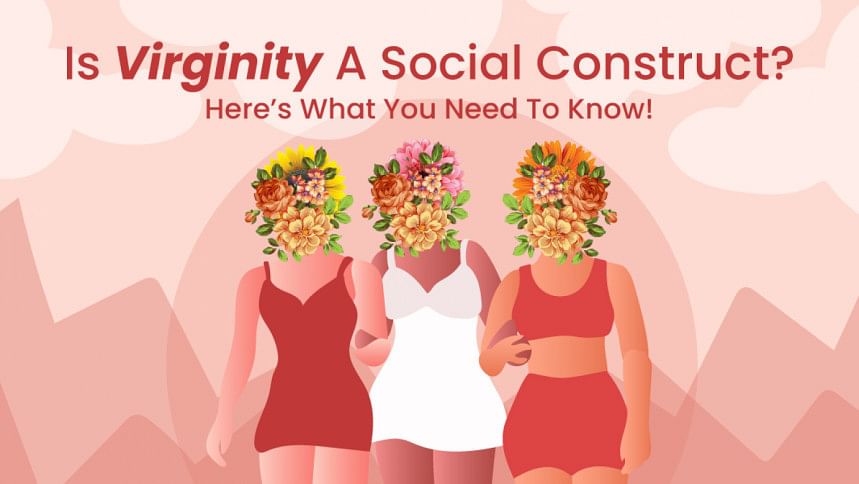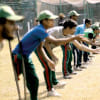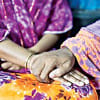Breaking the stigma regarding virginity

"Have you done it?" "Do you have a past?" "How far have you gone with someone?" "Ms or Mrs?"...
From friends, relatives, partners, spouses or even the OB/GYN — at some point, everyone's shown some strange (read: intrusive) interest in your sexual history. Addressing these deep-seated insecurities among the youth and adults, we speak to gender rights activists and a psychiatrist to deconstruct why people still cling to the social construct of 'virginity' in this day and age.
Why do people do what they do?
From a psychological standpoint, Dr Ashique Selim, MRCPsych, MBBS, Lead Consultant Psychiatrist and Managing Director, Psychological Health and Wellness Clinic (PHWC) explains that we cannot have a conversation about sex and sexuality without addressing the patriarchy that we live in.
"Controlling or prohibiting people from engaging in sexual acts, allows for gender disparity to exist. As a result of this continuing system, female sexuality is something that's largely monitored. It's present in the USA, Middle East, and Eastern countries as well," says Dr Selim.
Generally, in conservative cultures, the preservation of the first sexual act is reserved for spiritual ceremonies such as marriage. However, in liberal societies, there is the value placed on chastity among some people, while in others, there can be undue pressure to have the first act at a certain time or age i.e., 'before the high school prom.'
Dr Ashique states that people are having sex now as they were in the past, whether it's before, after, or during marriage, since the beginning of time. Hence, pre-marital sex is not entirely the media's fault because teenage pregnancy has been an issue for generations.
"Our grandparents or great-grandparents were getting married at the age of 13 and having children at 16, which at the time was the norm. Nowadays, people remain children longer since marriage has been pushed back due to societies becoming more educated. When equipped with the right information and the freedom to exercise their choices, the youth should be able to make healthy decisions at the right time without pressures imposed by mass media or society," he informs.
In his line of work, Dr Selim has found that people tend to confuse real-life sexual acts with those in pornography, thus suffering from performance anxiety. So, it is important to understand what healthy sexual acts entail, without demonising it as 'dirty' or 'sinful.'
As a mental health professional and a father, Dr Selim observed that even now, censorship of basic biology textbooks takes place even in progressive English medium schools.
"It's a common practice to remove the chapter on reproductive health to refrain children from seeing what genitalia looks like," he says.
Dr Ashique Selim emphasises that substantial work needs to be done in areas such as policy and awareness while working with individuals who are experiencing difficulties with these issues. In the same vein, we must take into account the structure of our society whilst being sensitive to people's belief systems; we have to be complicit with both sides in order to live with a healthy balance.
"Sex involves a lot of different things aside from the act itself. One needs to factor in Sexually Transmitted Diseases (STDs) and unwanted pregnancies — so it's extremely important that when one is choosing to have sex, they must be aware of the risks and consequences."
The state of gender rights and bodily autonomy
Drawing from her expertise in gender sensitisation, Tasaffy Hossain, Founder and Coordinator, Bonhishikha-Unlearn Gender, explains that the concept of virginity is largely attached to girls and women as opposed to men, however, there is still some wholesome value placed on virginity in general.
"If we delve deep into understanding what role virginity plays in society, it will eventually link to the basics of 'who gets to own the womb of a woman' as it is linked with heirs and who will inherit a man's (or their male ancestors') lineage. There is no other 'real' reason to obsess over virginity," she explains. This has eventually been translated into the cultural, social and traditional measure of 'how good' women are and thus, valuing them when it comes to their role, largely as a wife.
Tasaffy Hossain elaborates that the issue of virginity, and the 'need' sometimes to present oneself as a virgin or not, both are problematic, if there is social/peer pressure put on it. This creates a need for young people to fit in, to try to get to that 'status,' as opposed to considering important issues like comfort, choices, consent, and being able to understand what feels good and what does not. Instead, we see people never thinking about it or considering themselves and their bodies and minds as something to explore; or we see young people trying to fit into the larger peer 'cool' factors, still not focusing on their own selves enough.
Someone with a disability, gender dysphoria, or chronic illness might not love or feel comfortable in their body directly, but being able to explore how pleasure is in their mind, body and soul can create space for exploring different forms of joy and high.
Another important factor would be to encourage and learn how to pay attention and communicate with others, to understand what someone else is enjoying, ask and listen, explore together and hold space for growing and figuring out pleasure as partners. Nothing can beat verbal and non-verbal communication when it comes to sexual and romantic relationships.
"There's so much when we look into the diversity of human love, sexuality, and pleasure. Narrowing it down to virginity and pressure to satisfy society's needs, is really leaving one's own capacity to feel pleasure in the backseat. Safe, consensual, communicative sexual relationships need to become more of the fantasies we aim to achieve," says Tasaffy Hossain.
Breaking the stigma through education
Mayabee Arannya, works as the Co-Lead for Kotha, an organisation which was established in 2016 to fight the root causes of gender-based violence in Bangladesh. Kotha also uses social media as a tool to aware and educate people through resources created by the youth for the youth.
Education is an integral part of their operations and Kotha has the first youth-led Comprehensive Sexuality Education Programme which is called 'Kotha at School.'
"We go from school to school, teaching young people about their bodies, rights, gender norms and stereotypes, bullying, cyber harassment, sexual health and peer-to-peer relationships. What makes our programme stand out is that our peer educators who are teaching these middle and high-school students are close to their age. They are usually high-school graduates or university students who are trained by us. We believe every young person has the right to knowledge and information about their bodies," shares Mayabee.
Mayabee explains that due to past experiences, judgment, and sexual stigma, people's insecurities surrounding relationships and sex increase tenfold. Having past sexual experience can make one person insensitive towards a partner's lack of it. Additionally, many people might feel insecure sleeping with their partners knowing they have had sex with someone else before and they compare themselves to them.
"I've observed that when people who get into a relationship and have sex, with the expectation of getting married in the future, the person who was emotionally more invested often regrets 'losing it' to someone before marriage when the relationship does not work out. Placing such value on virginity adversely affects all parties involved, even though virginity is a social construct and not a fact," observes Mayabee.
She opines that conversations surrounding taboo topics, like virginity, need to be mainstreamed. "They are only happening behind closed doors and safe spaces, but I think we need to have the 'audacity' to bring this up in our day-to-day conversations. Making this a dinner table discussion might cause chaos at first, but we need to have these uncomfortable dialogues with people to start shifting our perspectives."

 For all latest news, follow The Daily Star's Google News channel.
For all latest news, follow The Daily Star's Google News channel. 








Comments